10 Tips on When and How to Prune Roses: A Step-by-Step Guide
-
Pete Ortiz
- Last updated:
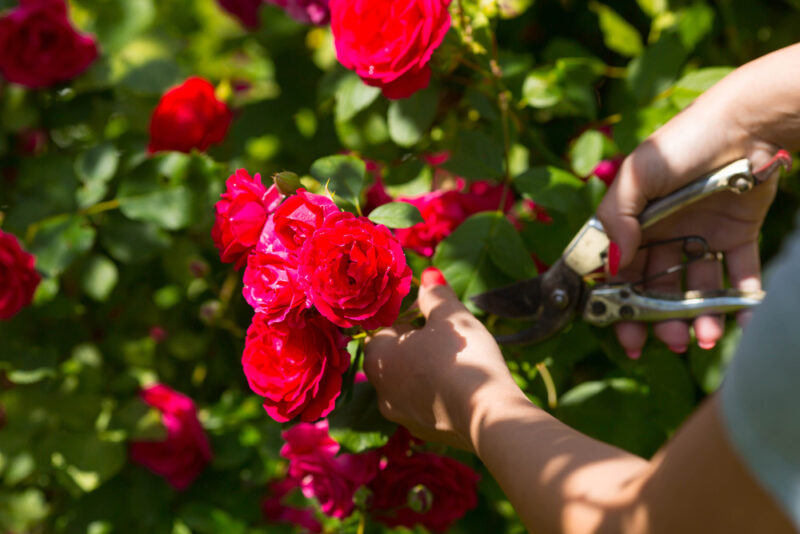
Every good rose bush gardener knows that the only way to get perfect-looking roses year after year is to prune them when the time is right. But how do you know what and when to prune, and how do you get the most out of the process?
There’s so much to figure out, so here, we highlighted 10 of the most important pruning tips for roses. If you follow these tips, you can tame any wild and struggling rose bushes and turn them into a prize-winning variety in no time.
The 10 Tips on When and How to Prune Roses
1. Use Bypass Shears
| Ease of Completion: | Easy |
| Cost: | Low |
| Importance: | Moderate |
This is more about using the right tools than anything else. Some people try to prune rose bushes with anvil shears, and while those will work, they crush the stems in the process. Bypass shears give you a clean cut when shearing.
This is better for the rose bush and reduces the chances of rot and other issues.
2. Clean Your Tools
| Ease of Completion: | Easy |
| Cost: | Free |
| Importance: | Important |
If you garden long enough, it’s only a matter of time until you have to deal with disease in your garden. One way that diseases can spread from plant to plant is through gardening tools.
This is why you should always clean your tools between each plant. This will keep you from unknowingly spreading disease throughout your entire garden when pruning. You should also wash your tools before and after pruning a rose bush, so bacteria don’t have time to grow the next time you use them.
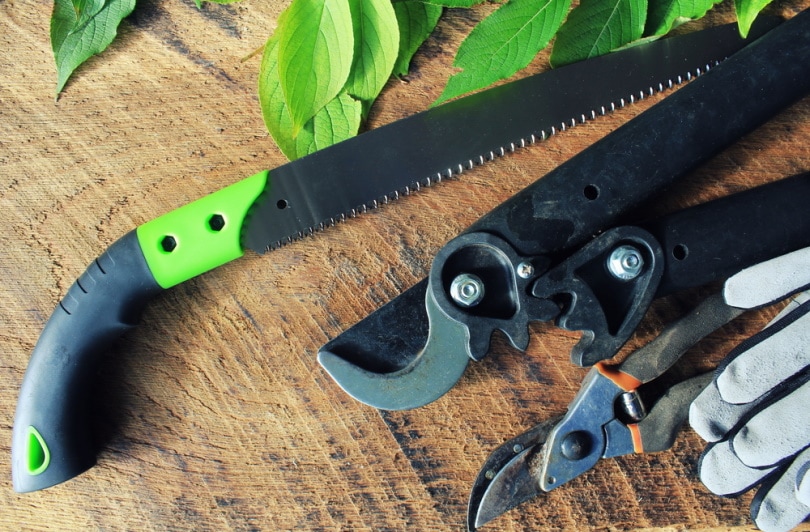
3. Prune at the Right Time of Year
| Ease of Completion: | Easy |
| Cost: | Free |
| Importance: | Important |
If you’re pruning rose bushes throughout the year, this isn’t a big deal, but when you’re completing your larger annual pruning, you want to do it at the right time, which depends on your zone. Here are the best times to prune a rose bush depending on what zone you live in.
- Zones 3 and 4: May
- Zones 5, 6, and 7: April
- Zone 8: March
- Zone 9: February
- Zone 10: January
4. Start With Removing Brown Wood
| Ease of Completion: | Easy |
| Cost: | Free |
| Importance: | Low |
Brown wood, commonly referred to as dead wood, is wood that won’t grow anymore. These are dead canes and just take up space and strangle the rest of the plant. You want to remove all the dead wood when pruning.
Simply look for canes without any green, and remove them — they won’t do anything beneficial for the plant throughout the growing season.
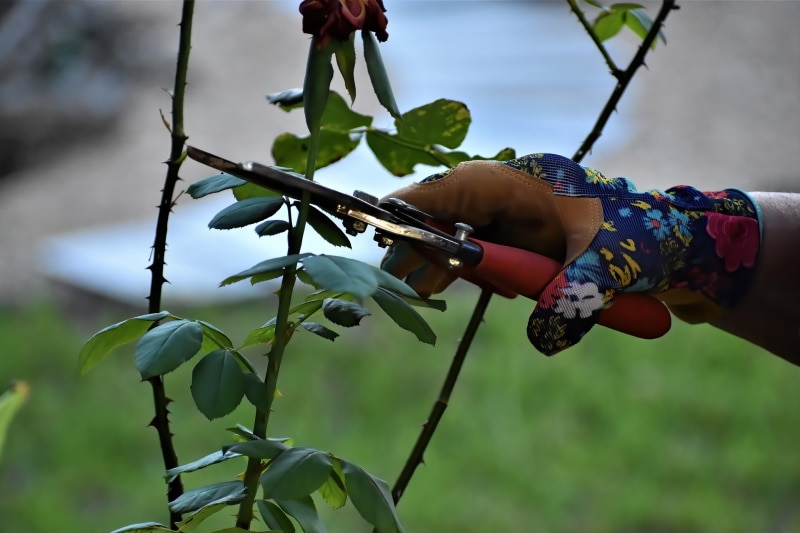
5. Trust Yourself
| Ease of Completion: | Moderate |
| Cost: | Free |
| Importance: | Important |
This is probably one of the hardest things to master when you’re pruning, but with experience, it will come. Don’t be afraid to cut; unless you severely over prune, it’ll grow back even if you make a mistake.
If you never take a chance, you won’t develop the confidence to properly prune your rose bush in the future. Trust the process and do what you need to do.
6. Know What You’re Pruning
| Ease of Completion: | Moderate |
| Cost: | Free |
| Importance: | Important |
There are many different rose bush varieties out there. Some rose bushes grow tall, while others stay short and grow outward. No matter how hard you try, you can’t force a rose bush to grow a different way.
Know what variation you have in the ground, and work with it, not against it. You’ll get far more flowers and a much healthier-looking rose bush this way.
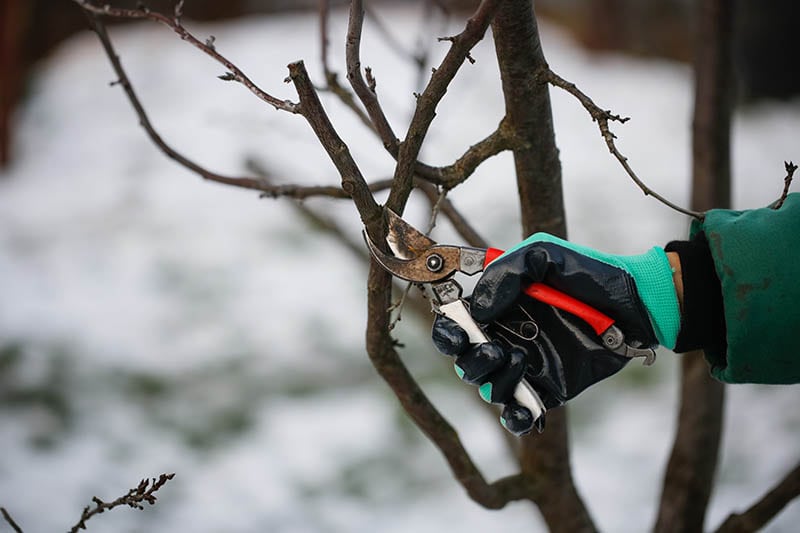
7. Pull Non-growing Canes
| Ease of Completion: | Easy |
| Cost: | Free |
| Importance: | Low |
Sometimes, a cane simply stops producing flowers, and that’s perfectly normal. But even though it’s not producing flowers, it’s still taking nutrients from the other canes. Therefore, it’s best to keep track of what canes aren’t producing flowers and pull them from the ground.
This will help divert nutrients to other canes and help the bush produce new canes that will produce flowers.
8. Shape When You Can
| Ease of Completion: | Easy |
| Cost: | Free |
| Importance: | Low |
While you want to stick with the right pruning season for larger jobs, you can make small cuts throughout the year. This will help you keep the plant growing the way that you want it to, which is a big deal for many rose bush gardeners.
Just don’t make big cuts throughout the growing season, or you might end up stunting the growth of the bush. But if that does happen, keep in mind that it will recover with time.
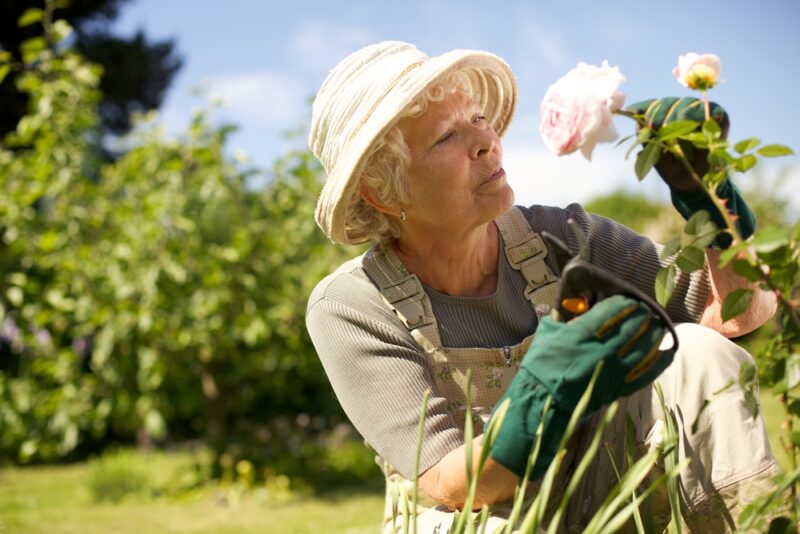
9. Seal Cuts
| Ease of Completion: | Easy |
| Cost: | Low |
| Importance: | Moderate |
While this step isn’t absolutely necessary, it prevents the cuts from rotting before they can seal up completely. Since you don’t want your pruning to lead to rot, we highly recommend taking the time to purchase and use a sealer after making pruning cuts.
10. Remove the Leaves
| Ease of Completion: | Moderate |
| Cost: | Free |
| Importance: | Moderate |
During the primary pruning season, it’s best if you remove any leaves before making your cuts. This isn’t completely necessary, but it will make it easier to see any diseases that might be hiding behind the leaves.
The sooner that you can catch a potential disease, the better you can treat or remove it before it spreads to other plants in your garden.
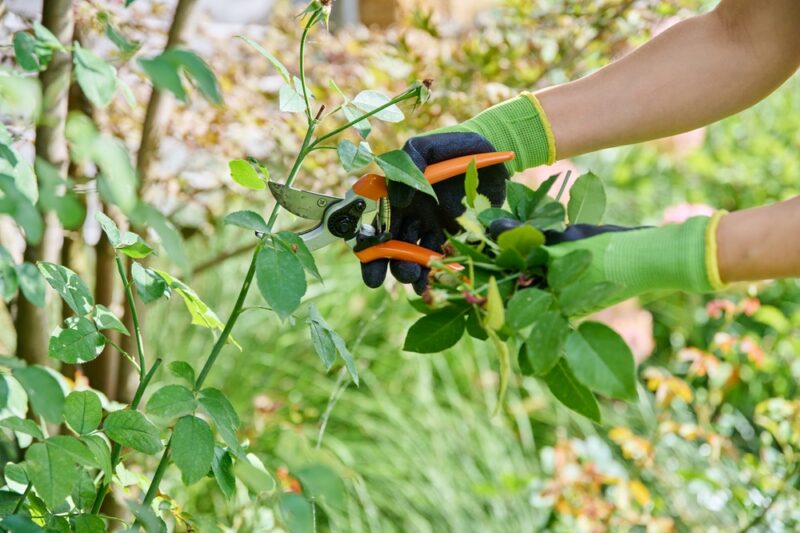
Why You Should Prune Rose Bushes
While it’s not necessary to prune rose bushes, there are a few reasons that it’s a good idea to do so at least once a year. First, pruning rose bushes gets rid of dead growth that inhibits new growth and flowers. This way, you’ll help your rose bush grow faster, and you’ll get more flowers.
Second, pruning your rose bushes helps you control where and how your rose bushes grow. If you want a neat-looking rose bush instead of a wild mess, you’ll need to prune it to get it looking that way.
Conclusion
Now that you know more about how to prune rose bushes, all that’s left is for you to grab your bypass shears and get started. Take the time to do a bit of work now, and you’ll get to enjoy a beautiful-looking rose garden all season long!
If it’s not the right time of year to prune your rose bushes, set up a reminder so you don’t forget when the time comes.
- See also: 8 Tips on When and How To Prune Boxwood
Featured Image Credit: PhotoJuli86, Shutterstock
Contents



